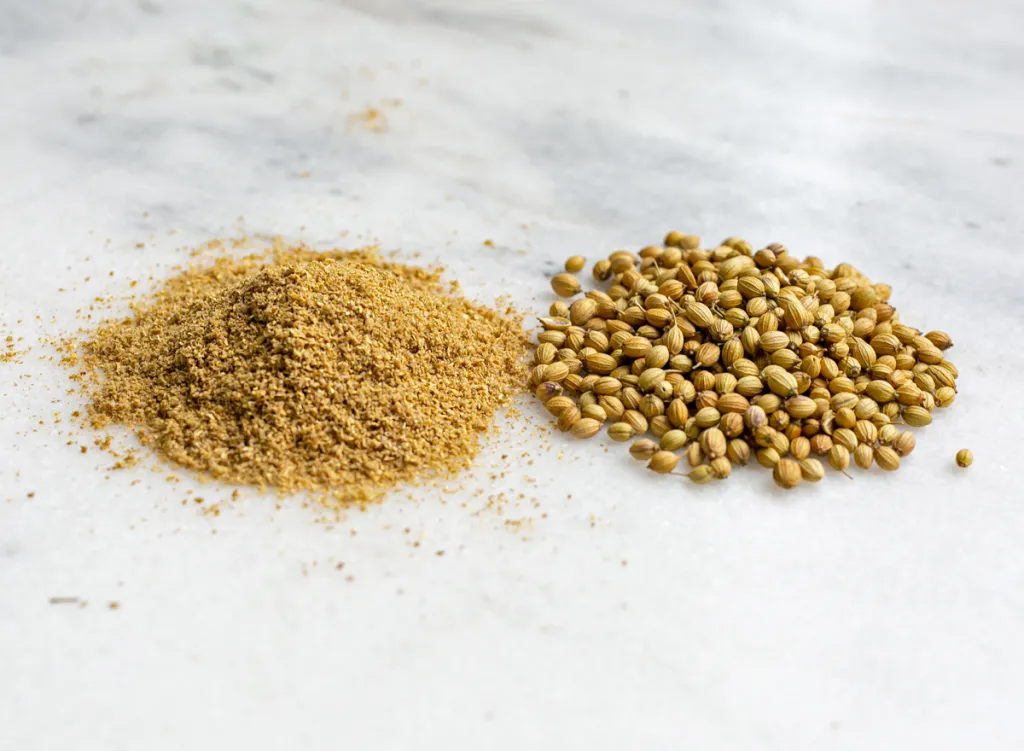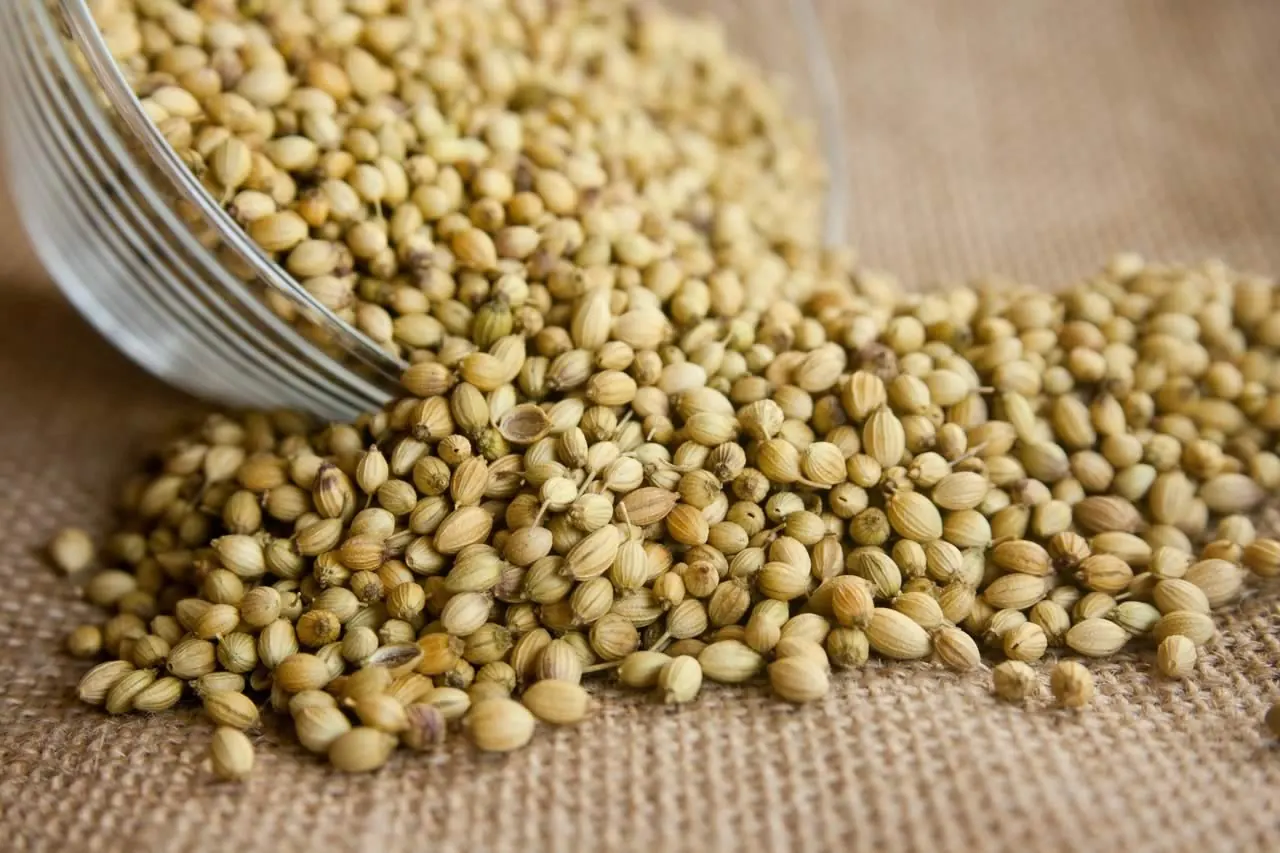If you’re wondering how to use coriander seeds for health benefits, you’re about to discover a versatile spice that goes far beyond enhancing flavor. Coriander seeds, prized in traditional medicine and cooking alike, are loaded with nutrients, antioxidants, and powerful compounds that can support digestion, regulate blood sugar, boost immunity, and much more.
This detailed guide will explain the multiple health benefits of coriander seeds, practical ways to incorporate them into your daily routine, and tips for maximizing their effects. Whether you want to improve gut health, manage diabetes, or support heart health, understanding how to use coriander seeds safely and effectively can make a big difference.
What Are Coriander Seeds?
Coriander seeds come from the Coriandrum sativum plant, which also produces cilantro leaves. They have a warm, citrusy aroma and slightly nutty flavor. Besides culinary uses in global cuisines, coriander seeds have been traditionally employed in herbal remedies for digestive problems, inflammation, and infections.
Rich in dietary fiber, vitamins like K and C, and minerals such as calcium, iron, and magnesium, coriander seeds also contain essential oils and antioxidants, making them a natural powerhouse for overall wellness.
How to Use Coriander Seeds for Health Benefits
Coriander Seeds for Improved Digestion and Gut Health
One of the most common traditional uses of coriander seeds is for digestive support.
- How to use: Soak 1-2 teaspoons of coriander seeds in a glass of water overnight. In the morning, strain and drink the water on an empty stomach for relief from bloating, indigestion, and gas. Chewing the soaked seeds gently can also enhance gut comfort.
- Why it works: Coriander seeds contain fiber and compounds that stimulate digestive enzyme production and soothe the stomach lining, promoting efficient digestion.
Coriander Seeds to Regulate Blood Sugar
Emerging research shows coriander seeds can help stabilize blood glucose levels, which is beneficial for people with prediabetes or type 2 diabetes.
- How to use: Consume coriander seed water daily (1 teaspoon of seeds soaked overnight in water). Alternatively, add powdered coriander to soups and meals regularly.
- Effect: The seeds improve insulin sensitivity and promote enzymes that metabolize sugar, helping lower fasting blood sugar levels.
Boosting Immunity with Coriander Seeds
Thanks to antioxidants like quercetin and terpinene, coriander seeds help combat oxidative stress and inflammation, strengthening your immune defense.
- How to use: Include coriander powder in cooking or make coriander tea by steeping crushed seeds in hot water for 10-15 minutes to enjoy immune-boosting effects.
- Benefit: Regular intake can protect your cells from damage and may reduce inflammation linked to chronic diseases.
Promoting Heart Health
Coriander seeds contribute to cardiovascular health by lowering blood pressure and reducing LDL cholesterol.
- How to use: Incorporate coriander seeds powder or oil into your diet. Eating foods seasoned with coriander helps regulate sodium balance and supports healthy blood vessels.
- Additional tip: The diuretic effect of coriander encourages excess fluid and sodium removal, reducing the strain on the heart.
Natural Detox and Kidney Health
Coriander seeds support kidney function by increasing urine production and flushing out toxins.
- How to use: Drink coriander seed water regularly to aid detoxification and improve urinary tract health.
- Result: Helps relieve water retention, cleanse the urinary system, and prevent infections.
Different Ways to Use Coriander Seeds

1. Coriander Seed Water
- Soak seeds overnight in warm water and drink the strained water in the morning.
- Best for detoxification, digestion, and blood sugar control.
2. Coriander Tea
- Boil 1-2 teaspoons of crushed coriander seeds in water for 10 minutes, strain, and sip.
- Useful for soothing digestion and immunity.
3. Powdered Coriander
- Grind seeds into powder and add to soups, stews, curries, or sprinkle on salads.
- Makes daily use in cooking easy and flavorful.
4. Coriander Oil
- Extracted oil is used in aromatherapy, skincare, and to relieve muscle pain.
- Consult experts before ingestion or topical use.
Practical Recipes Using Coriander Seeds

Coriander Seed Water for Digestion
- Soak 1 tablespoon of seeds in a glass of water overnight.
- Drink the water on an empty stomach in the morning to ease bloating.
Coriander-Spiced Lentil Soup
- Add 1 teaspoon coriander powder and whole coriander seeds to your favorite lentil soup recipe.
- This adds antioxidant support while boosting flavor.
Refreshing Coriander Tea
- Boil 1 teaspoon crushed coriander seeds with a cinnamon stick for 10 minutes.
- Strain, add a lemon slice or honey, and enjoy.
Safety Tips and Precautions
- Start with small amounts to test tolerance, especially if you have allergies to other spices.
- Avoid excessive intake if you have low blood sugar or are on diabetes medication—consult a healthcare provider.
- Pregnant and breastfeeding women should seek advice before regular use of medicinal amounts.
- Store coriander seeds in airtight containers to preserve freshness.
Coriander Seeds and Their Role in Anti-Inflammatory and Antimicrobial Health
Coriander seeds have been valued not only for their flavor but also for their potent anti-inflammatory and antimicrobial properties, making them a natural solution for numerous health concerns.
How Coriander Seeds Combat Inflammation
Chronic inflammation is at the root of many health problems, including arthritis, heart disease, and metabolic disorders. Coriander seeds contain bioactive compounds like linalool and flavonoids, which help decrease inflammation markers in the body.
- Practical use: Regularly consuming coriander seed water or including coriander powder in meals can contribute to lowering systemic inflammation.
- Example: For individuals with joint pain or inflammatory digestive issues, incorporating coriander daily may help reduce discomfort.
Antimicrobial Effects for Infection Prevention
Coriander seeds exhibit antimicrobial activity against bacteria, fungi, and viruses. Traditional use includes treating infections like urinary tract infections, skin conditions, and foodborne pathogens.
- How to use: Applying coriander seed extracts or drinking coriander seed infusions can support the immune system’s ability to fight infections naturally.
- Tip: Using freshly ground coriander seeds in cooking helps inhibit microbial growth in food.
Coriander Seeds and Hormonal Balance
Emerging research suggests coriander seeds may influence hormone regulation, helping manage conditions related to hormonal imbalance.
Benefits on Menstrual Health and PCOS
- Coriander seeds’ antioxidant properties can support ovarian health and reduce oxidative stress implicated in polycystic ovary syndrome (PCOS).
- They may aid in normalizing menstrual cycles and alleviating symptoms like cramping.
How to Incorporate for Hormonal Support
- Drinking coriander seed tea during the luteal phase (post-ovulation) or regularly throughout the cycle might provide hormonal relief.
- Combining coriander seeds with other herbal allies like cinnamon or fenugreek can enhance effects.
Cognitive Health and Coriander Seeds
Some traditional uses and preliminary scientific findings indicate coriander seeds might support brain health and cognitive function.
Neuroprotective Properties
- Antioxidants in coriander seeds combat oxidative stress in neural tissues, potentially slowing cognitive decline.
- Anti-anxiety effects are also reported with coriander extracts, aiding mental well-being.
Using Coriander for Mind and Memory
- Coriander tea or powder supplemented in meals may contribute to improved focus and mental clarity.
- Incorporate coriander with a balanced diet rich in omega-3s and antioxidants for synergistic brain support.
Coriander Seeds in Weight Management and Metabolic Health

This humble seed also shows promise in promoting healthy metabolism and assisting in weight loss when combined with lifestyle changes.
Mechanisms Supporting Weight Control
- The fiber content in coriander seeds enhances satiety, reducing calorie intake.
- Coriander compounds may influence fat metabolism and reduce lipid accumulation.
Practical Applications
- Integrate coriander seed water 15–30 minutes before meals to curb overeating.
- Include coriander powder in low-calorie dishes to boost flavor and metabolism simultaneously.
Tips for Maximizing Coriander Seed Benefits
Quality Matters
- Purchase organic, whole coriander seeds for maximum potency.
- Store in airtight containers away from heat and sunlight.
Preparation Techniques
- Lightly roasting coriander seeds can amplify flavor without destroying nutrients.
- Freshly grinding seeds before use releases essential oils rich in bioactive compounds.
- Avoid overcooking to preserve delicate antioxidants.
Consistency and Moderation
- Benefits accrue with regular, moderate use — typically 1-3 teaspoons per day.
- Avoid excessive intake to prevent potential digestive upset.
Holistic Lifestyle Integration With Coriander Seeds
Pair coriander seed consumption with balanced nutrition, stress management, and regular physical activity to unlock its full health potential. Using coriander seeds as part of a healthy dietary pattern supports cardiovascular, digestive, metabolic, and immune health comprehensively.
Coriander Seeds and Gut Microbiota: Supporting a Healthy Microbiome
Recent scientific interest has focused on how coriander seeds influence gut health beyond just digestion. Your gut microbiome—the trillions of bacteria living in your digestive tract—plays a crucial role in immunity, metabolism, and mental health.
Coriander Seeds as Prebiotics
- The dietary fiber and polysaccharides in coriander seeds act as prebiotics, nourishing beneficial gut bacteria such as Lactobacillus and Bifidobacterium.
- A flourishing microbiome enhances nutrient absorption, supports gut barrier integrity, and helps regulate inflammation systemically.
Practical Tips
- Regular consumption of coriander seed water or powder supports gut microbial balance naturally.
- Combine coriander with probiotic-rich foods like yogurt or fermented vegetables for synergistic effects on gut health.
Coriander Seeds and Skin Health: Natural Remedies and Benefits

Coriander seeds contain antioxidants and antibacterial compounds that can promote healthy skin, reduce acne, and aid in skin detoxification.
How Coriander Supports Skin Wellness
- Antioxidants help neutralize free radicals that cause premature aging and skin inflammation.
- Antimicrobial effects reduce acne-causing bacteria and promote wound healing.
- The seeds’ anti-inflammatory properties soothe skin irritations and reduce redness.
Usage Suggestions for Skin Care
- Prepare coriander seed water as a natural facial toner to cleanse and refresh skin.
- Mix ground coriander seed powder with honey or aloe vera gel to make a gentle face mask helping with acne and dryness.
- Use coriander-infused oils topically for improved skin texture and radiance.
Integrating Coriander Seeds Into Your Daily Routine: Creative Ideas
Consistency is key when harnessing the health benefits of coriander seeds. Here are creative, easy ways to make them part of your daily life:
Morning Ritual
- Start your day with a glass of warm coriander seed water to jumpstart digestion and metabolism.
- Add a teaspoon of coriander powder to your morning smoothie or yogurt bowl for added fiber and antioxidants.
Cooking Enhancements
- Toast whole coriander seeds lightly and mix into homemade spice blends for soups, stews, curries, or roasted vegetables.
- Sprinkle freshly ground coriander over salads or grain bowls for fresh flavor and health benefits.
Evening Wind-Down
- Enjoy a calming cup of coriander seed tea after dinner to aid digestion and promote restful sleep.
- Incorporate coriander in herbal blends combined with chamomile or fennel to enhance relaxation properties.
Research Highlights and Future Potential of Coriander Seeds
Ongoing scientific studies continue to uncover new potential uses and mechanisms behind coriander’s health benefits.
Anticancer Properties
- Early lab studies show coriander seed extracts may inhibit growth of certain cancer cells, thanks to strong antioxidant and anti-inflammatory phytochemicals.
- While more clinical trials are needed, this area holds promise for coriander as a supplementary protective agent.
Cognitive and Neurodegenerative Disease Research
- Investigations on coriander’s neuroprotective effects are exploring how its components might help in diseases like Alzheimer’s and Parkinson’s by reducing oxidative stress and neuroinflammation.
Metabolic Syndrome and Beyond
- Coriander’s effects on lipid profiles, blood sugar, and inflammation suggest it could be an affordable adjunct in managing metabolic syndrome components.
Tailoring Coriander Seed Use for Specific Populations
For Seniors
- Gentle on digestion and beneficial for cardiovascular and cognitive support, coriander seeds are great for healthy aging.
- Use mild preparations like coriander tea or soaked seeds to avoid digestive discomfort.
For Diabetics
- Monitor blood sugar closely when introducing coriander seed supplements and consult healthcare providers for dose adjustments.
- Combine with dietary and lifestyle interventions for best results.
For Pregnant or Breastfeeding Women
- Consultation with healthcare professionals is important before using coriander medicinally to ensure safety.
Conclusion
Coriander seeds offer impressive health benefits ranging from improved digestion and blood sugar regulation to immune support and heart health. To gain these benefits, incorporate soaked seeds, coriander tea, or coriander powder into your daily routine. Always begin with moderate amounts and consult healthcare professionals for special conditions.
